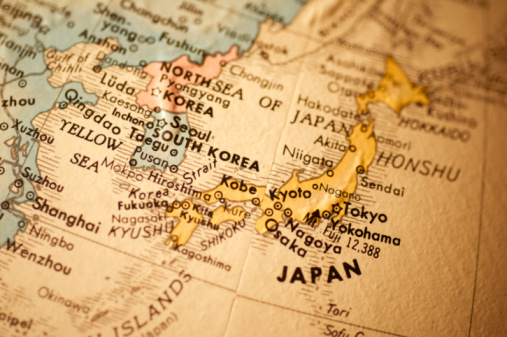Investing
Obama and Japan's Abe Press Minimum Wage -- Danger to Economies
Published:
As Japan’s Prime Minister Shinzo Abe pressed the nation’s largest companies to raise the minimum wage, one reaction summed up the resistance likely to face a similar proposal by President Obama. Tadashi Okamura, chairman of the Japan Chamber of Commerce and Industry, said, “It’s natural that a company with better profits would increase pay, but it’s not appropriate to talk generally about how much and when during the wage negotiations.” Is it reasonable for any national government to potentially cripple companies that do not have the capacity to pay workers more? No. One size does not fit all.
The president proposed, during his State of the Union address, that the federal minimum wage go from $7.25 to $9. After that, the amount would automatically be raised in step with inflation. The proposal did not include wage increases for people who make just above the minimum wage, so some portion of the population that likely faces the effect of ongoing low incomes will not get any relief.
The fate of the nearly poor is not at the heart of the matter in either Japan or the United States. The minimum wage debate is easy to understand because if covers millions of workers whose pay falls below a bright line, and not just above it. For that group, one solution would help economic prosperity across the country, if $1.75 per hour is an adequate amount to stimulate consumer activity. There are enough sides to the argument to show that some economists believe the action would be counterproductive.
Companies do not want to raise the minimum wage because management is cheap, and they want to keep as much profit as possible for themselves. That point of view may have some validity at firms where margins are high. For companies where margins are low, or there are no margins at all, higher wages are a real enemy. The notion that these companies might have to cut workers to remain viable is probably accurate. Experts have fought over the dangers, or lack thereof, for years. How many people lose their jobs if businesses are forced to pay everyone who makes below a certain amount more? It is impossible to forecast how the math will work. There are tens of thousands of businesses and millions of workers the futures of which would combine to give an answer.
It is natural that Abe and Obama would like one simple solution to the plight of low wage workers. But it is “not appropriate to talk generally about how much and when ….” The simplest path, in the case, is not the best one.
The average American spends $17,274 on debit cards a year, and it’s a HUGE mistake. First, debit cards don’t have the same fraud protections as credit cards. Once your money is gone, it’s gone. But more importantly you can actually get something back from this spending every time you swipe.
Issuers are handing out wild bonuses right now. With some you can earn up to 5% back on every purchase. That’s like getting a 5% discount on everything you buy!
Our top pick is kind of hard to imagine. Not only does it pay up to 5% back, it also includes a $200 cash back reward in the first six months, a 0% intro APR, and…. $0 annual fee. It’s quite literally free money for any one that uses a card regularly. Click here to learn more!
Flywheel Publishing has partnered with CardRatings to provide coverage of credit card products. Flywheel Publishing and CardRatings may receive a commission from card issuers.
Thank you for reading! Have some feedback for us?
Contact the 24/7 Wall St. editorial team.